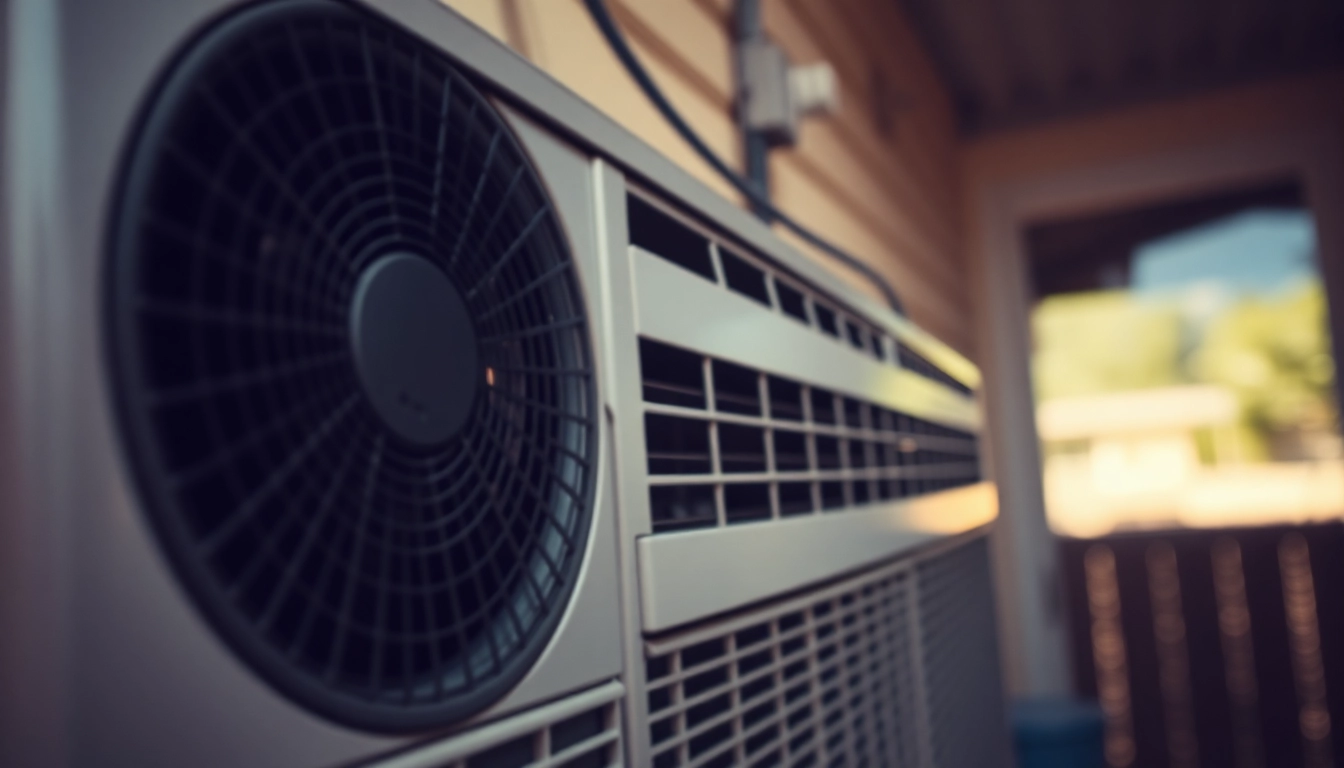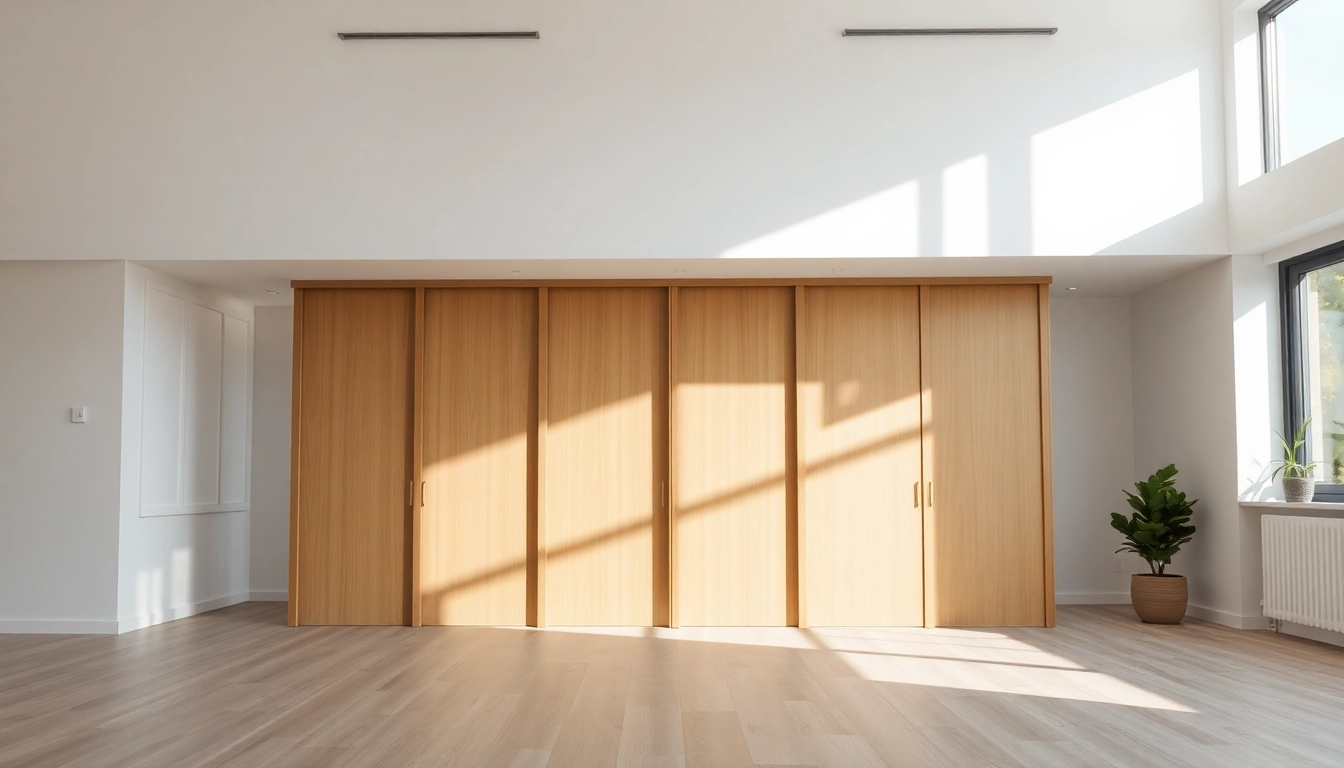Understanding Air Conditioner Basics
Air conditioning systems play a vital role in maintaining comfort in residential and commercial spaces, especially during the sweltering summer months. Understanding how they work can help homeowners troubleshoot issues when they arise. For anyone asking why my air conditioner is not working, a glance at the underlying principles can be invaluable.
What Are the Key Components?
An air conditioning system is composed of several key components:
- Compressor: The heart of the air conditioner, the compressor circulates refrigerant, facilitating heat exchange. It pressurizes the refrigerant and pushes it through the system.
- Condenser: Located outside, the condenser dissipates heat from the refrigerant to cool it down as it transitions from gas to liquid.
- Evaporator: Inside the home, the evaporator absorbs heat from the indoor air, using the cooled refrigerant to lower the space’s temperature.
- Thermostat: The control center where homeowners set their desired temperature; it regulates the air conditioner’s operation based on indoor temperatures.
- Air Filters: These trap dust, debris, and other contaminants, ensuring clean air circulation. Regular maintenance of filters is crucial for efficiency.
How Do Different Types of AC Units Operate?
Air conditioners come in various types, each with specific operational methods:
- Central Air Conditioning: This system cools the entire home using a network of ducts. The central unit typically includes a large compressor and condenser located outside.
- Window Units: Ideal for single rooms or small spaces, window AC units are self-contained devices that can be installed in a window opening, offering flexibility and ease of use.
- Split Systems: Consisting of indoor and outdoor units, split systems effectively manage temperatures in multiple rooms without extensive ductwork.
- Portable AC Units: These are mobile devices designed to cool specific areas, making them suitable for temporary cooling needs.
Signs of a Malfunctioning System
Identifying problems early on can save time and money. Here are common indicators that an air conditioning unit may be malfunctioning:
- Inconsistent cooling across rooms
- Unusual noises such as banging or rattling
- Increased energy bills without changes in usage patterns
- Moisture or leaks around the unit
- Unpleasant odors coming from the system
Top Reasons Why My Air Conditioner is Not Working
When you find your air conditioning unit failing to cool your space, various issues could be to blame. Below are some of the most common reasons your AC unit is not functioning properly:
Electrical Issues: Circuit Breakers and Power Supply
One of the first troubleshooting steps is to check the power supply. If the AC unit is not turning on, you might want to:
- Inspect the circuit breaker or fuse: An overloaded circuit or a blown fuse can prevent the AC from receiving power.
- Test the outlet: For window units, ensure that they are plugged in securely and that the outlet is functional.
Common Mechanical Problems: Fans and Compressors
Mechanical failures are another major cause of AC problems:
- Fan Malfunctions: If the blower fan is malfunctioning, it may not be circulating air effectively, leading to inefficient cooling.
- Compressor Issues: A malfunctioning compressor can’t move refrigerant effectively, directly affecting the cooling capacity.
Environmental Factors: Thermostat Settings and Airflow Blockages
Incorrect thermostat settings can lead to inefficiencies. Verify that the thermostat is set to cool and is functioning properly. Additionally, ensure there are no obstructions blocking airflow.
- Check vents and ducts for blockage by furniture or dust buildup.
- Inspect outdoor units for debris or vegetation that might be hindering airflow.
Troubleshooting Steps for Homeowners
When your air conditioner is not working as expected, follow these troubleshooting steps to identify the issue:
Checking and Resetting Your Thermostat
Begin by checking the thermostat settings. Ensure it is set to a cooler temperature than the current indoor atmosphere. If that fails, try:
- Resetting the thermostat: Turn it off, wait for a few moments, then turn it back on.
- Replacing batteries if applicable: Old batteries may impair performance.
Inspecting Filters and Ducts for Obstructions
Dirty filters can significantly impact airflow and efficiency. Follow these steps:
- Check and clean or replace filters monthly, especially during high usage seasons.
- Inspect ductwork for kinks, leaks, or blockages that could impede airflow.
Evaluating the Condenser and Evaporator Units
Proper maintenance of the condenser and evaporator units is critical:
- Clean the condenser coils to enhance heat dissipation.
- Inspect the evaporator unit for ice build-up, which can indicate low refrigerant levels.
When to Call a Professional Technician
Some problems may require the expertise of a trained HVAC technician. Recognize these signs:
Signs Indicating Major Repairs are Needed
If you notice strange noises, persistent leaks, or if the unit repeatedly trips the circuit breaker, it’s time to call in the professionals. Issues with the compressor or the refrigerant system can also signal the need for assistance.
Understanding Service Contracts and Warranty Options
Reviewing the terms of service contracts can sometimes reveal covered repairs, making it essential to keep tabs on warranty options.
Tips for Choosing the Right HVAC Technician
When selecting a technician for service, consider:
- Checking licensing and insurance.
- Asking for recommendations from friends or family.
- Reading online reviews to gauge customer satisfaction.
Preventive Maintenance for a Well-Functioning AC Unit
To ensure your air conditioning system remains reliable, preventive maintenance is key:
Regular System Checks: What to Look For
Scheduling regular inspections with an HVAC professional can catch problems before they escalate. Be alert for:
- Unusual noises or vibrations during operation.
- Changes in energy efficiency or bill amounts.
Seasonal Maintenance Tips to Extend Lifespan
Perform essential seasonal maintenance like:
- Cleaning or replacing filters every month.
- Scheduling a professional tune-up before the summer heat hits.
Common Myths About Air Conditioning Maintenance
It’s essential to debunk myths surrounding air conditioning maintenance:
- Myth: Air conditioners only need maintenance annually.
- Myth: Covering your AC unit in winter makes it last longer.
Understanding these concepts and performing regular maintenance can often mitigate the question of why my air conditioner is not working. Keeping a close eye on system performance and being proactive with maintenance can ensure your AC unit remains efficient and effective for years to come.



